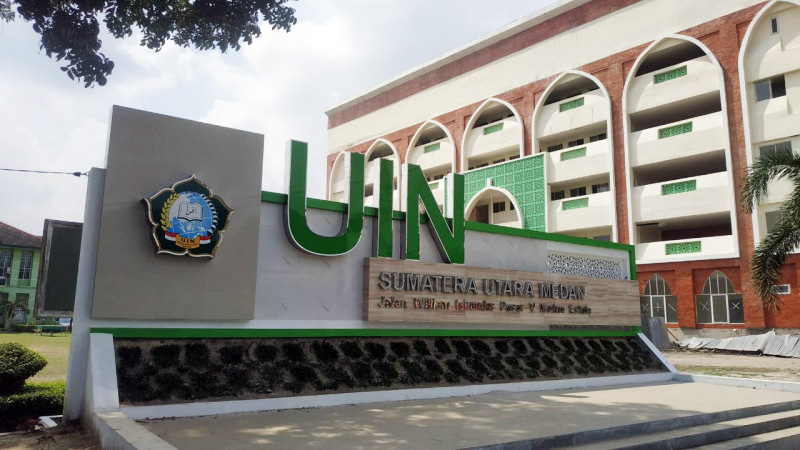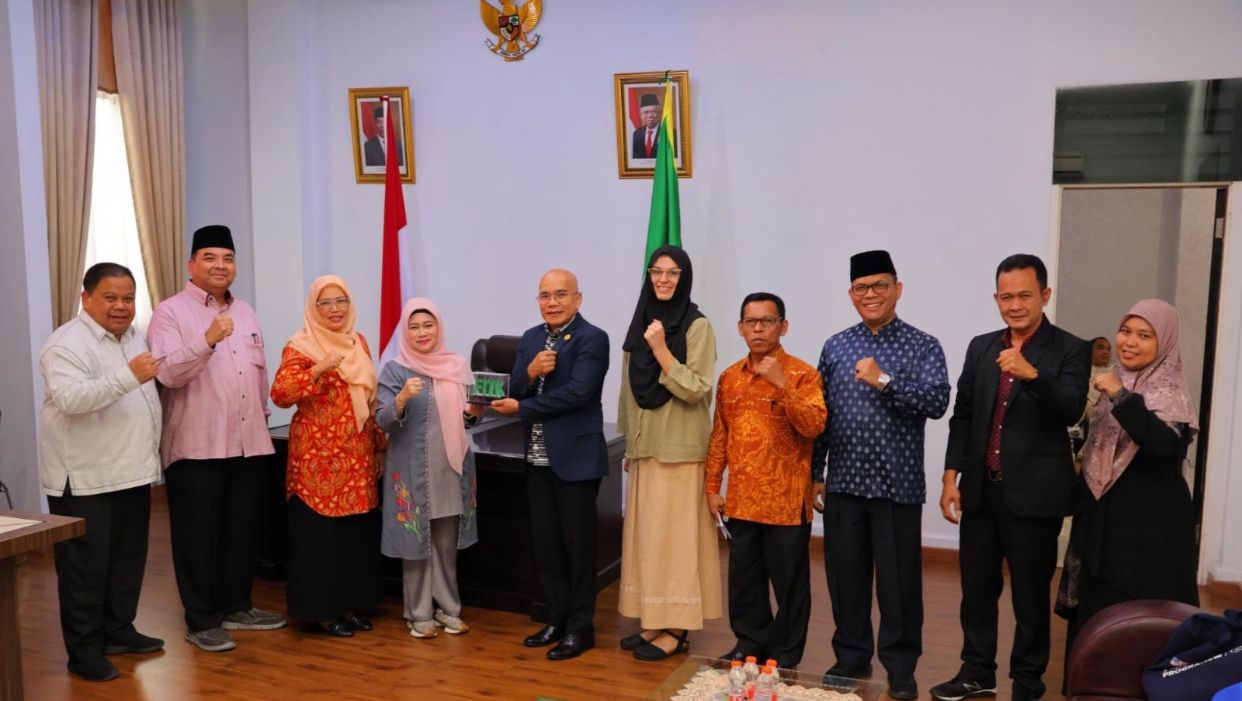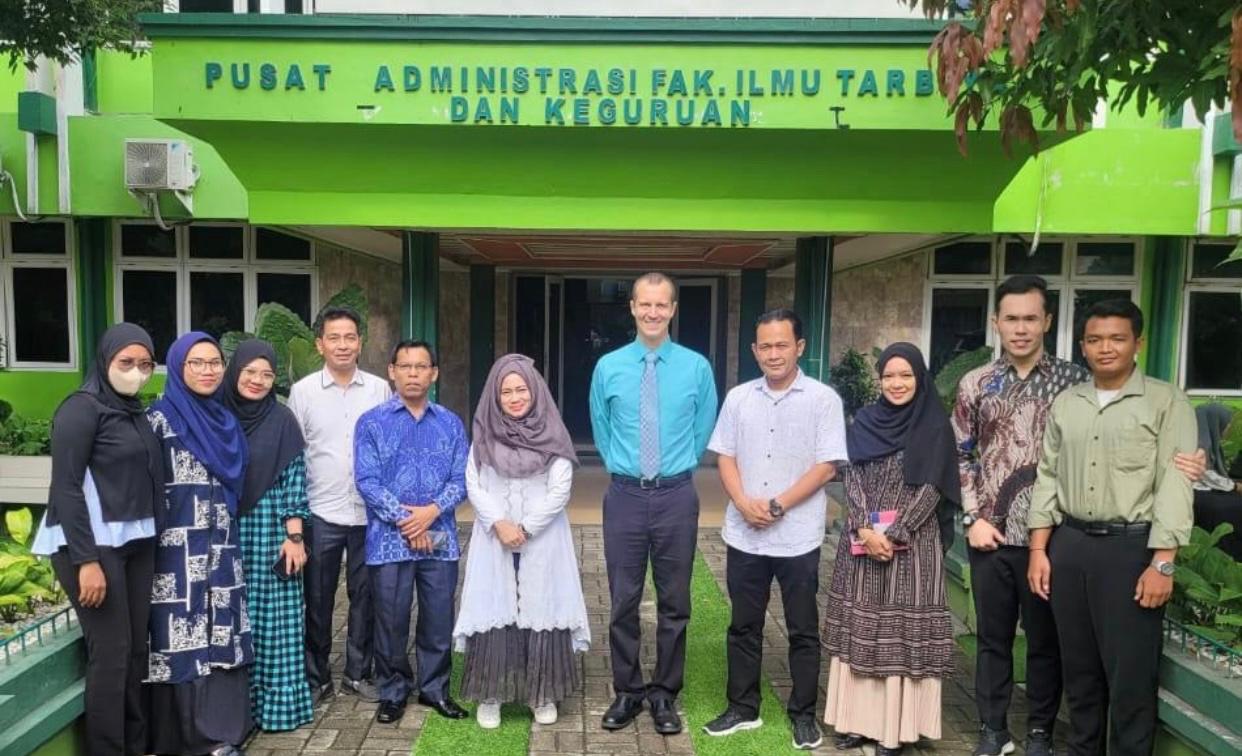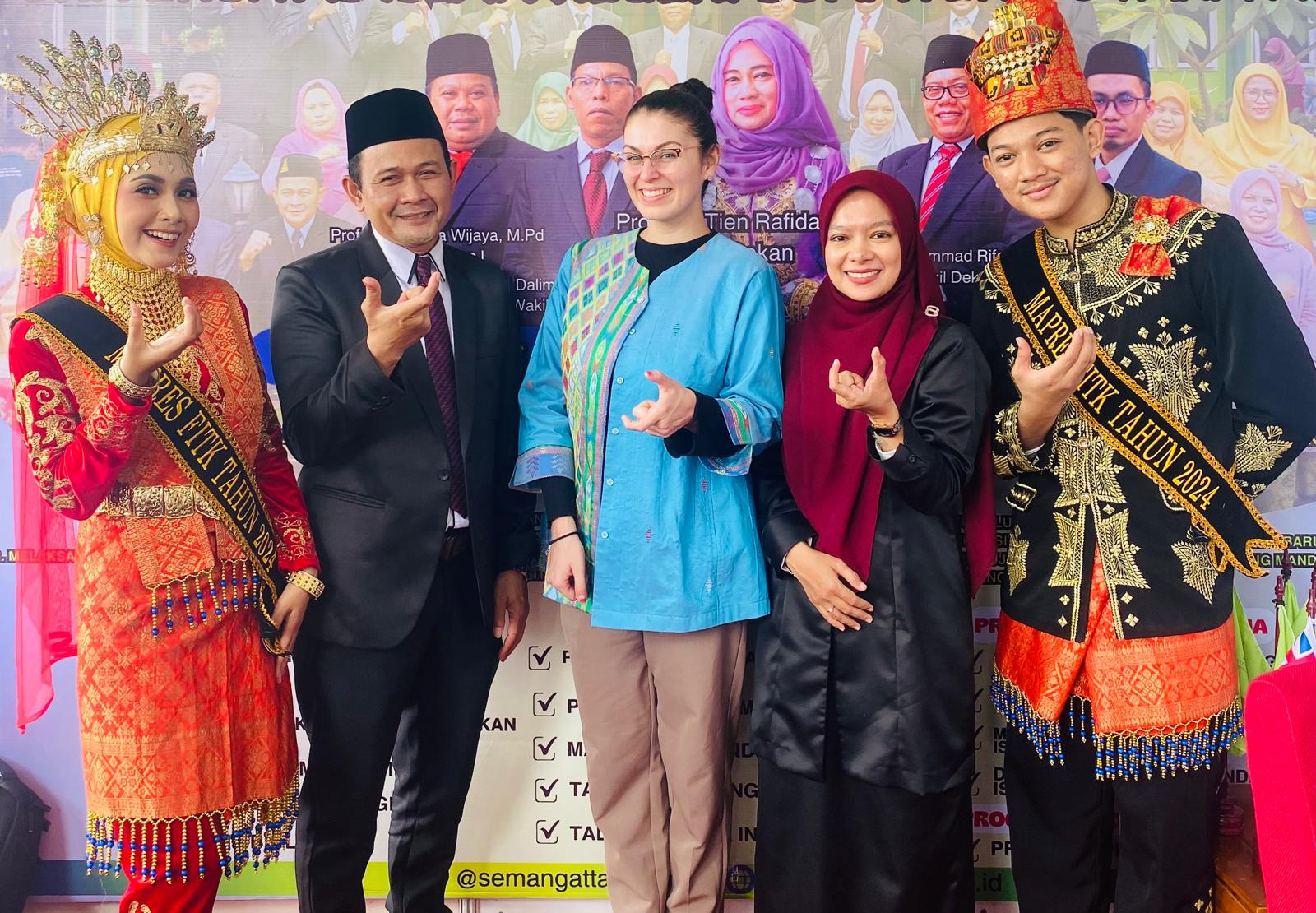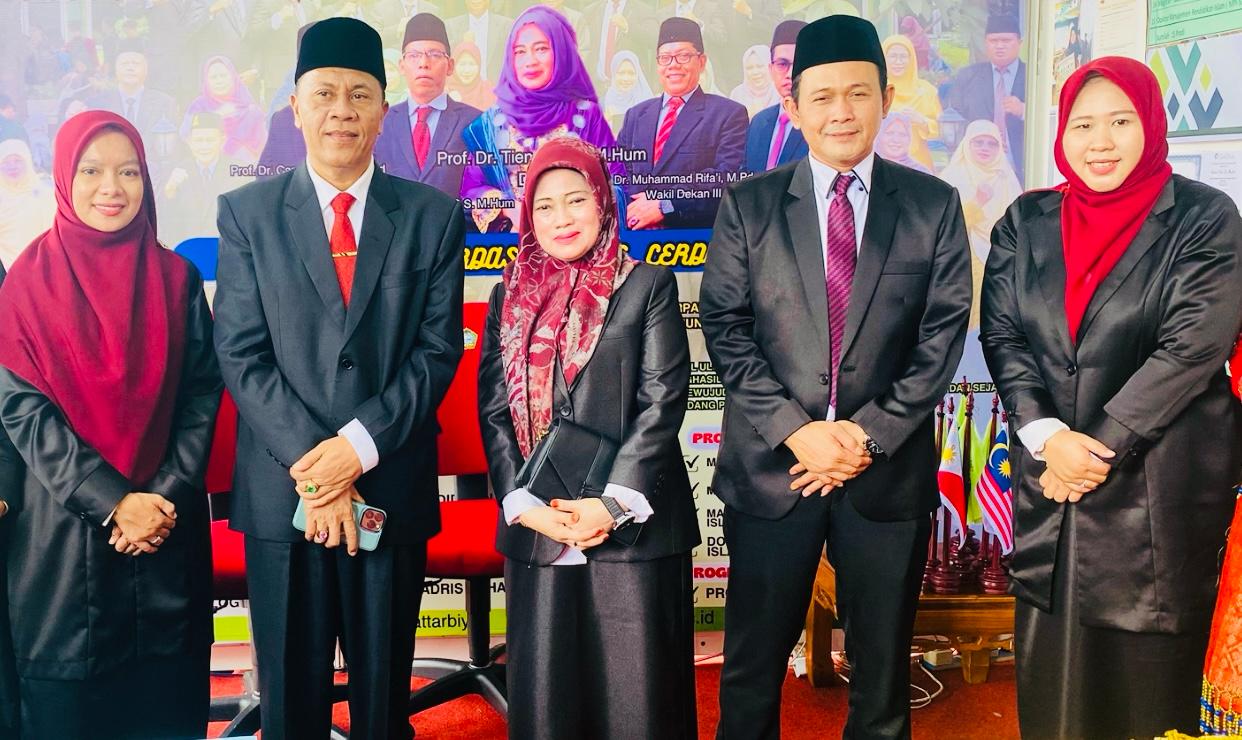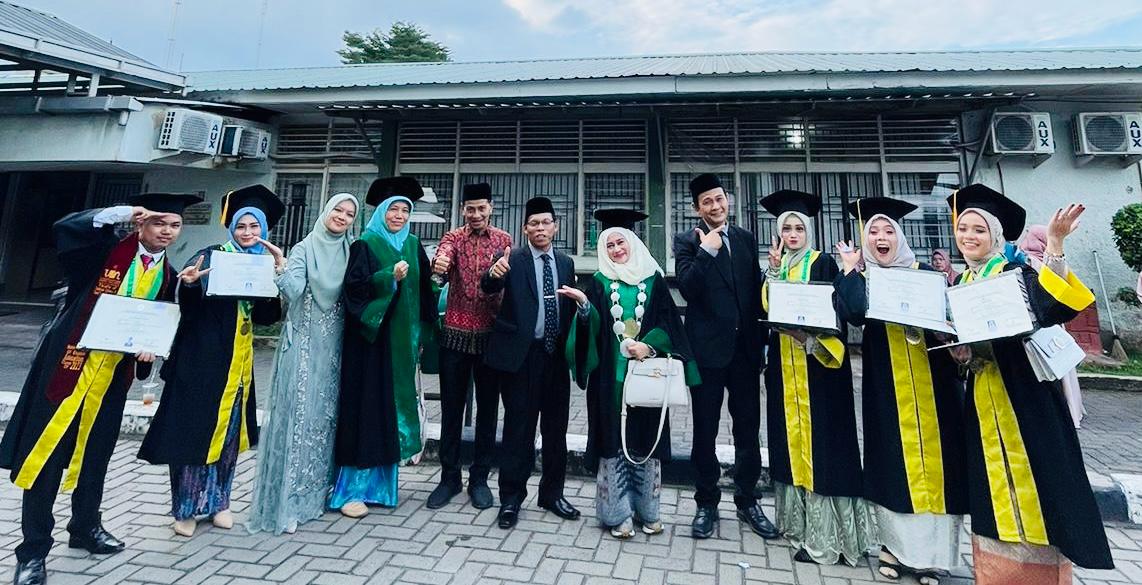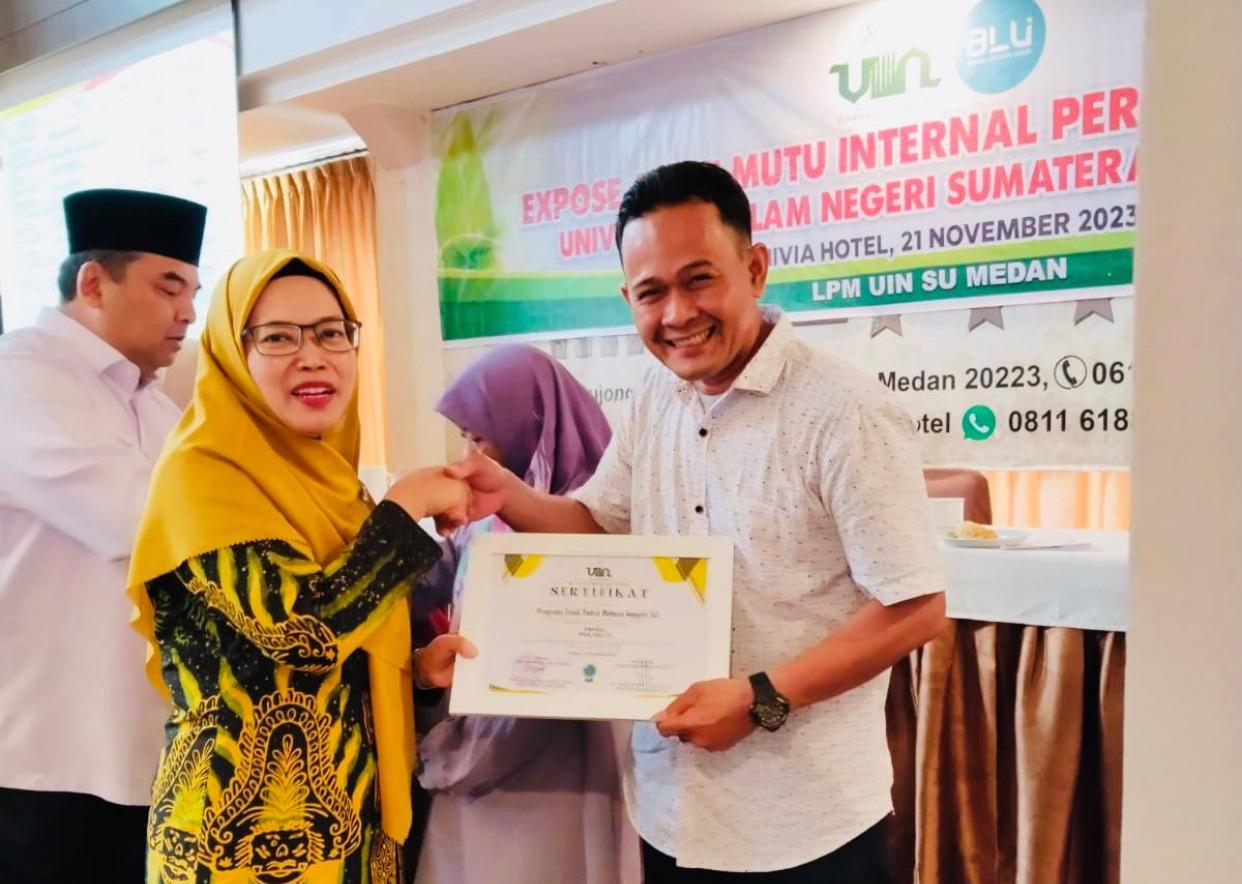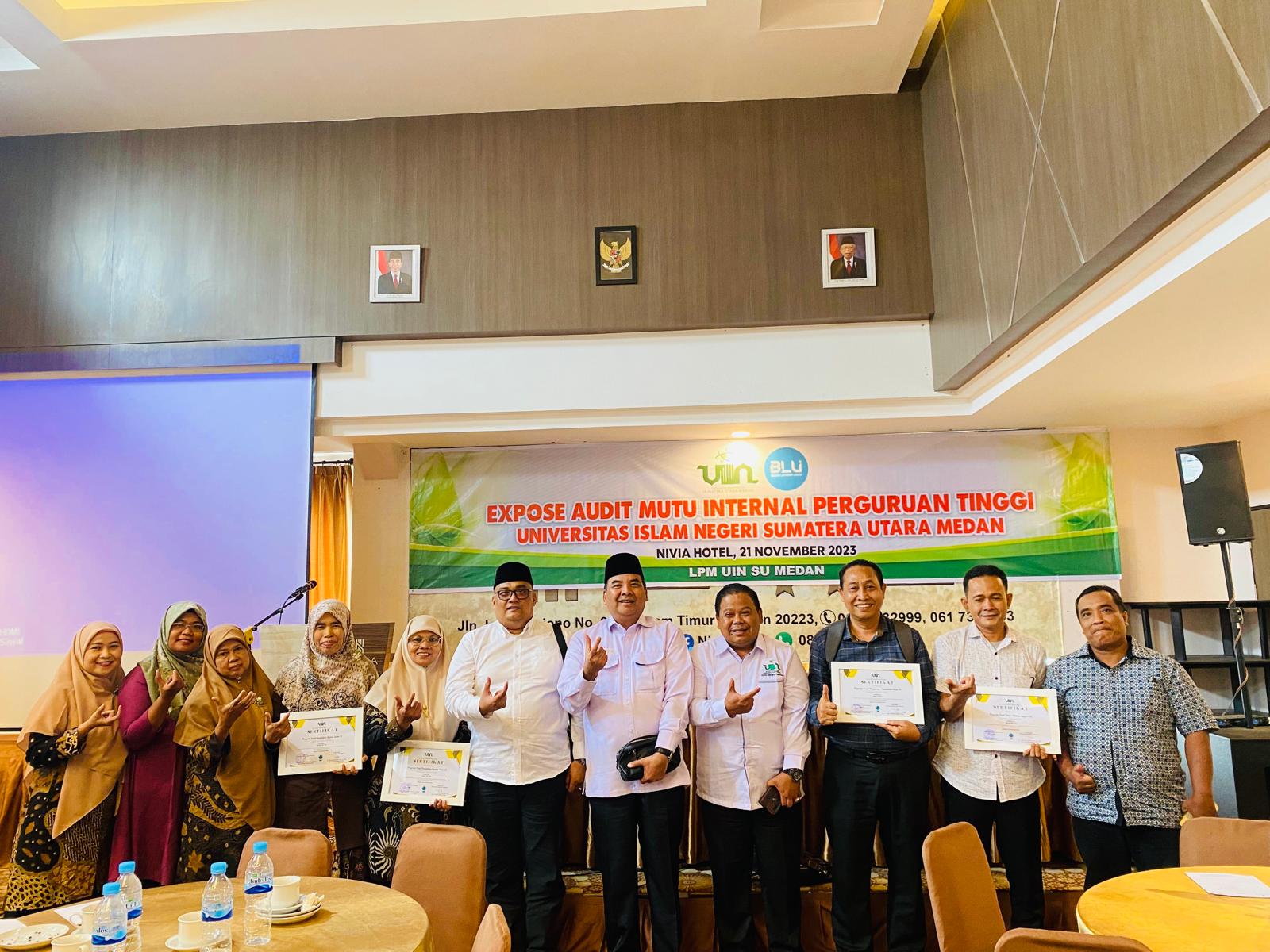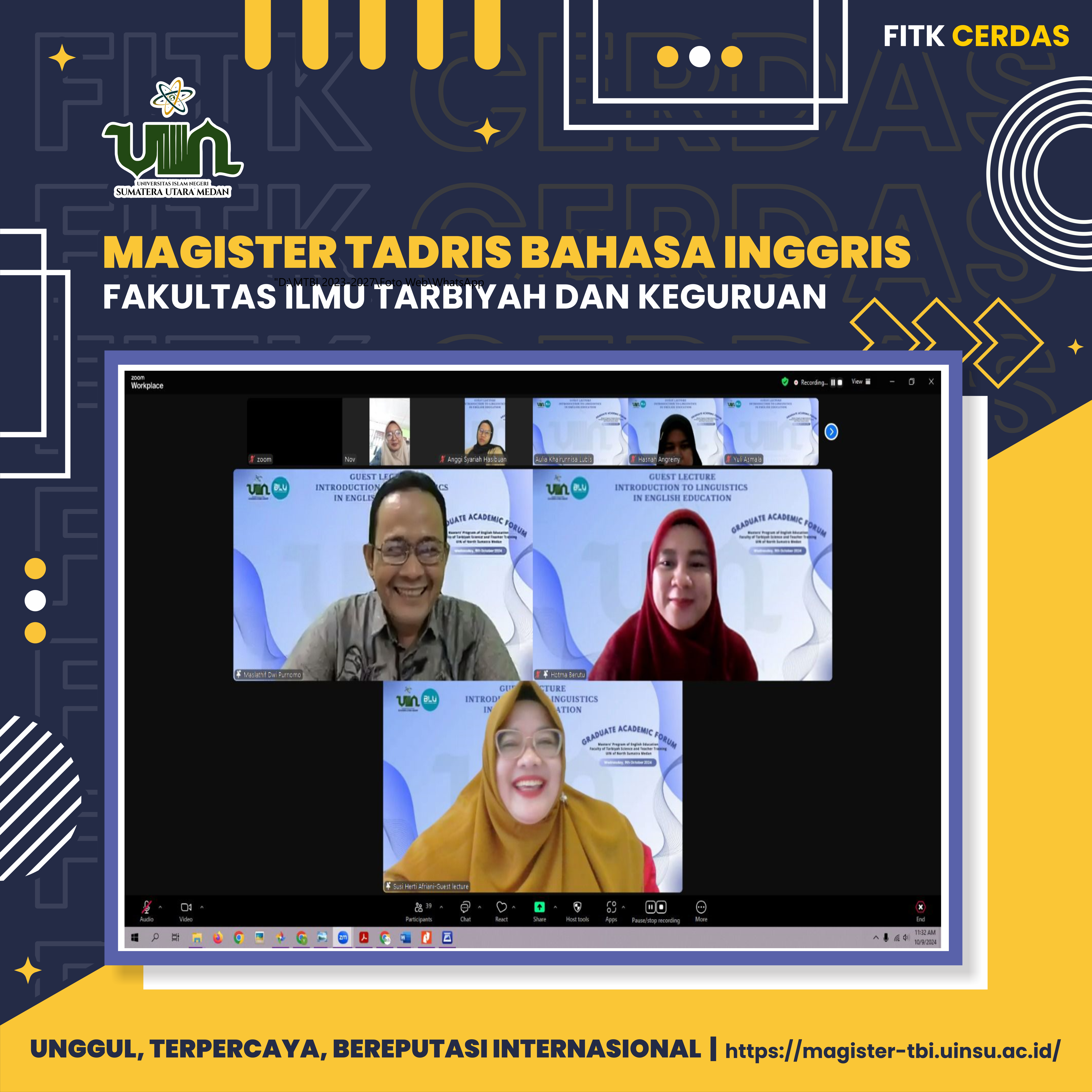
Medan, 9th October 20249
Master’s Program of English Education, Faculty of Tarbiyah Science and Teacher Training, UIN of North Sumatra Medan, held an engaging and informative guest lecture titled “Introduction to Linguistics in English Education”. The lecture was delivered by Assoc. Prof. Susi Herti Afriani, SS., M.Hum., Ph.D. Head of Office of International Affairs, UIN of Raden Fatah, Palembang. She is a distinguished expert in linguistics with a broad range of research and teaching experiences in language education. The event attracted a diverse audience, including students, faculty members, and educators who were eager to expand their understanding of linguistic theory and its practical application in the field of English education.
The event began with an opening speech by Maslathif Dwi Purnomo, Ph.D., Head of Master’s Program of English Education. In his address, Maslathif highlighted the importance of pragmatics in language teaching, stating that “analyzing speech acts allows educators to grasp the underlying intentions behind utterances, which is essential in fostering effective communication in classrooms.” He also emphasized the relevance of this topic for both students and teachers, as it connects linguistic theory to practical teaching strategies.
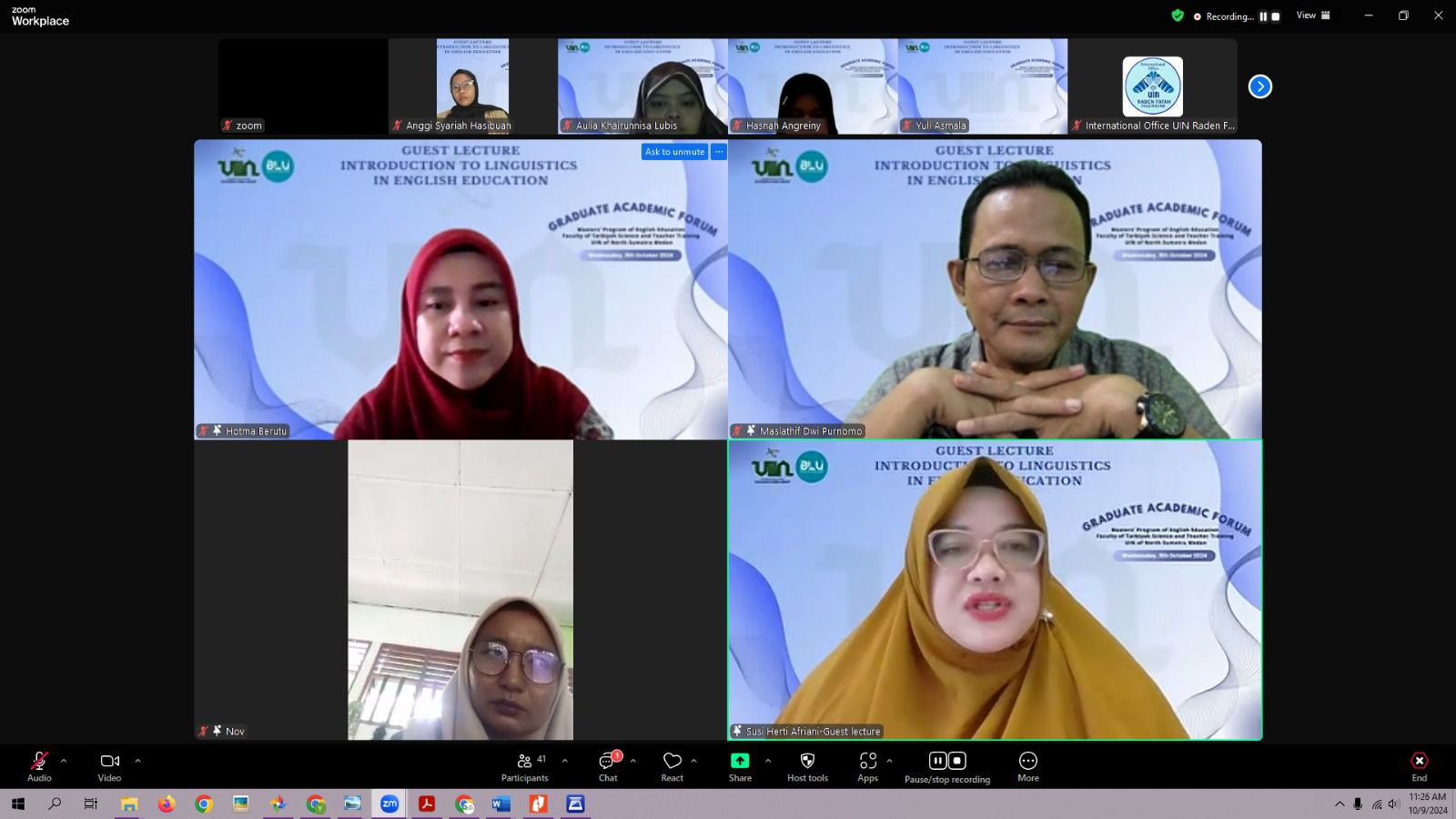
Assoc. Prof. Susi Herti Afriani presented an in-depth analysis of directive speech acts, which are used to get the listener to do something, such as commands, requests, suggestions, and advice. Drawing on her extensive research in pragmatics, she explained that directive speech acts play a pivotal role in everyday communication and in educational settings, where teachers often use directives to manage classroom activities and give instructions to students.
The lecture covered various types of directives, including explicit directives like commands (“Close the book!”) and indirect directives where the intended action is implied rather than stated outright (“Could you pass me the book?”). Assoc. Prof. Susi explored how different cultures handle directive speech acts, noting that politeness strategies and power dynamics often influence how directives are given and interpreted.
A significant portion of the lecture focused on how understanding pragmatics, particularly directive speech acts, can improve teaching practices. Assoc. Prof. Susi argued that teachers need to be aware of how their speech acts are perceived by students, especially when giving instructions or correcting behavior. She demonstrated how certain directives could be misinterpreted if not framed appropriately, which could affect student participation and learning outcomes. She encouraged educators to consider factors such as tone, context, and cultural background when issuing directives to students.
The speaker also discussed politeness theory in relation to directives, emphasizing how teachers can maintain a balance between authority and rapport with students. She introduced Brown and Levinson’s politeness strategies and illustrated how these could be applied in classroom communication to ensure that directives are delivered in a way that is respectful and conducive to learning.
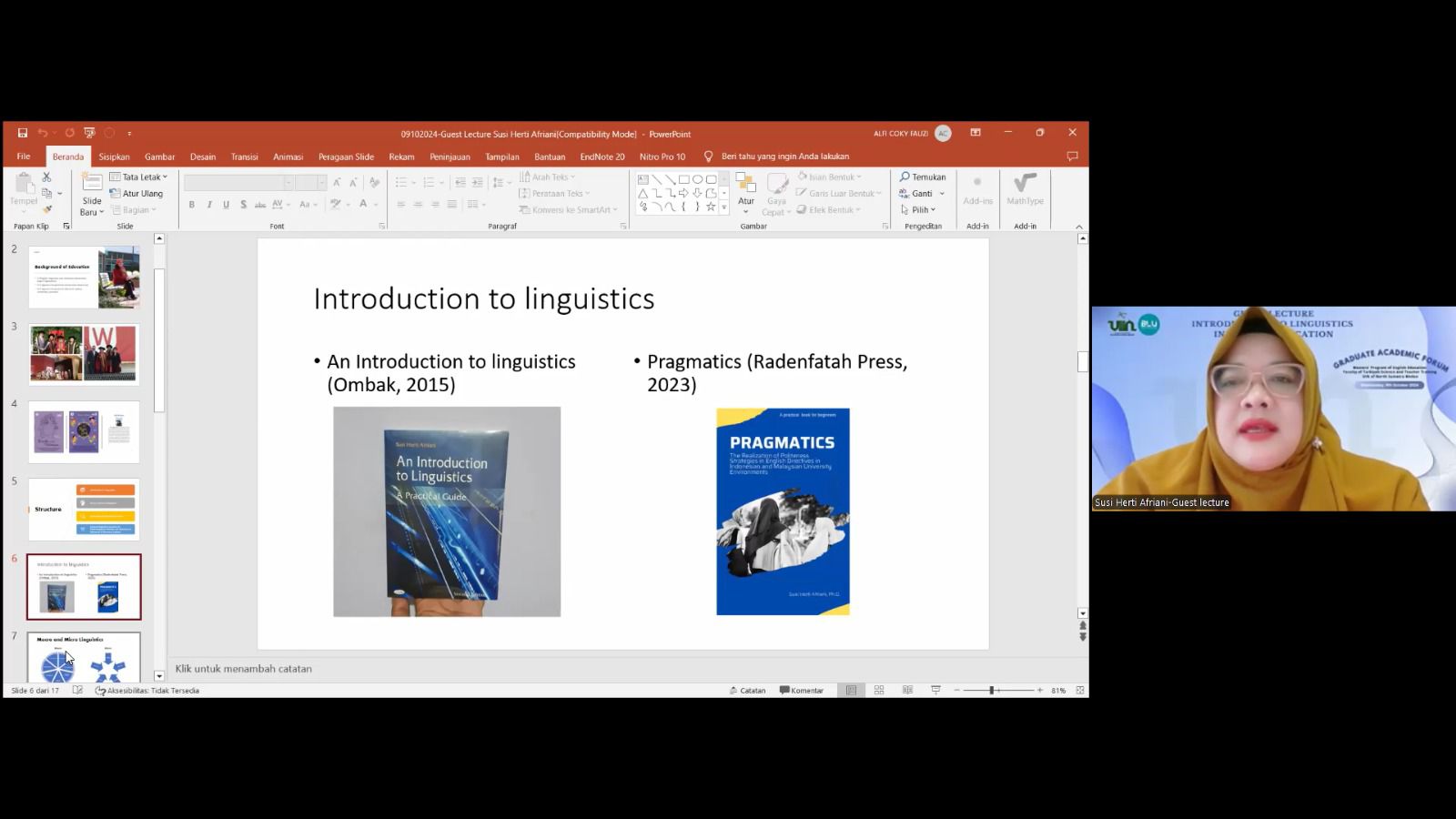
During the interactive session, students and faculty posed questions regarding the challenges of using directive speech acts in multicultural classrooms, where learners from diverse linguistic and cultural backgrounds may interpret directives differently. Assoc. Prof. Susi addressed these concerns by highlighting the importance of context sensitivity and the use of contextual cues to clarify meaning. She provided practical examples of how teachers could adapt their language use to accommodate diverse students’ needs, ensuring that their directives are understood clearly and respectfully.
In addition, Assoc. Prof. Susi presented case studies from her research on directive speech acts in educational contexts, where she analyzed teacher-student interactions to reveal how pragmatics could improve communication and reduce misunderstandings. Her findings suggested that teachers who are more aware of the pragmatics behind their speech acts tend to have better classroom management and more engaged students.
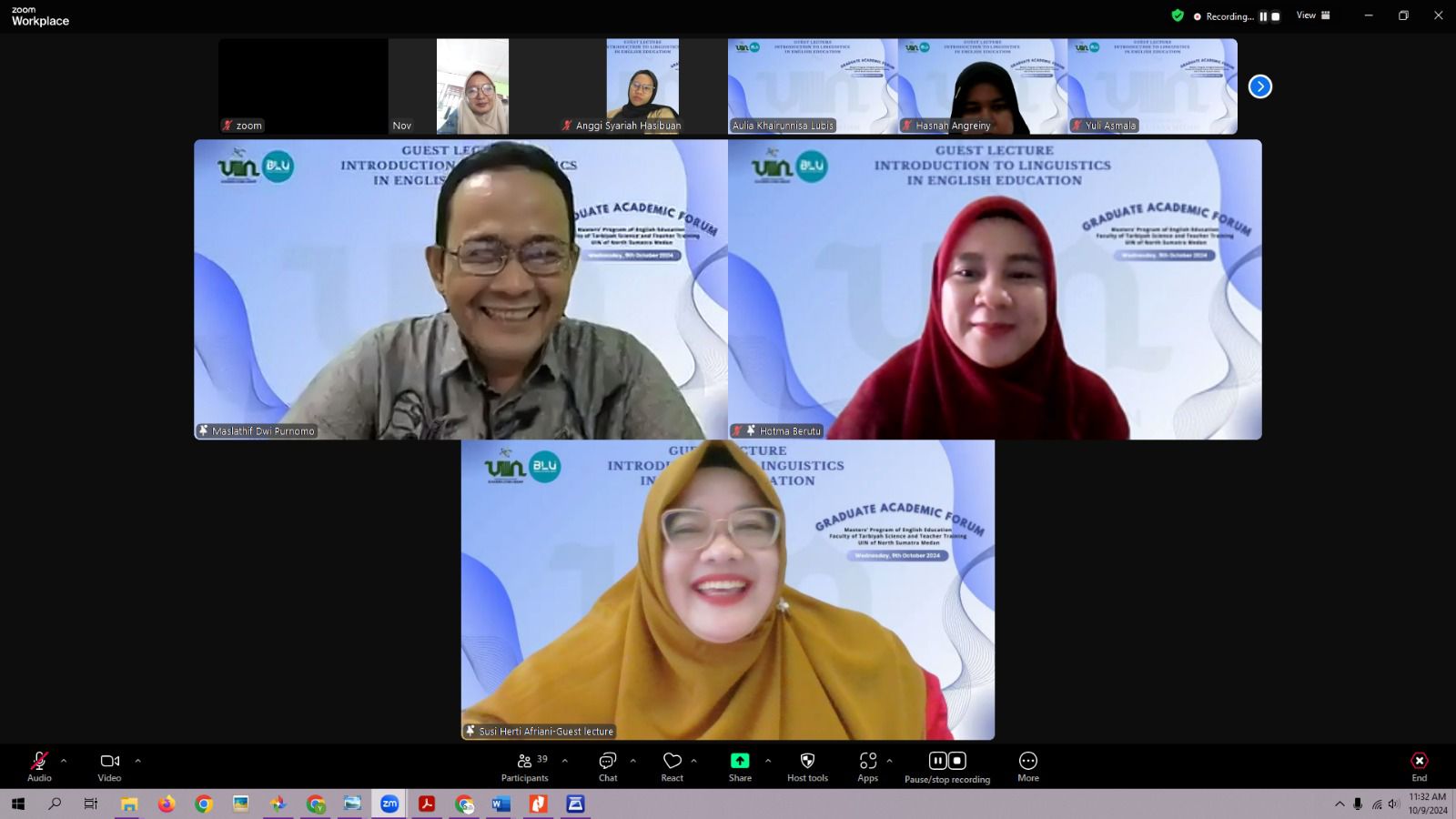
The lecture concluded with closing remarks from Dr. Maslathif, who expressed his gratitude to Assoc. Prof. Susi for delivering such a thought-provoking and academically enriching session. He noted that the lecture provided students and teachers with valuable insights into how linguistics and pragmatics can be applied in real-world educational settings, enhancing both teaching effectiveness and student learning experiences.
The event was part of a series of guest lectures organized by the Master’s Program of English Education, FITK – UINSU designed to expose students to cutting-edge research and practices in the field of English language teaching.

